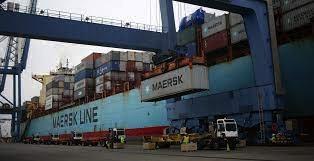 Following resolution of the labor conflict covering West Coast ports with an agreement five months ago, attention is now directed to negotiating a satisfactory Gulf and East Coast port agreement with the current arrangement due to expire on September 30th, 2024.
Following resolution of the labor conflict covering West Coast ports with an agreement five months ago, attention is now directed to negotiating a satisfactory Gulf and East Coast port agreement with the current arrangement due to expire on September 30th, 2024.
A spokesperson for the International Longshoreman’s Association representing 45,000 dock workers warned of the possibility of a strike unless a mutually acceptable contract is negotiated. It is self-evident that a strike at this time would have serious political implications given proximity to the national election. The International Longshoreman’s Association will have to negotiate in good faith with the United States Marine Alliance representing East and Gulf Coast port operators and shipping lines. The Union is seeking additional compensation and exclusivity at existing and new terminals.
A point of contention is the Leatherman Terminal at the port of Charleston, SC., opened in 2021that has stood idle since completion. The facility has a capacity for 700,000 20-foot equivalent containers annually and it was designed to enhance efficiency and improve the state economy. At issue is the plan for state employees to function as lift-equipment operators and for members of the International Longshoreman’s Association to fill all other positions. The Union sued the port operator alleging a violation of the existing contract. The right to sue was confirmed by the National Labor Relations Board and was affirmed by the Fourth Circuit Court of Appeals. The issue is due to be considered by SCOTUS.

During negotiations leading up to the West Coast labor agreement, shippers moved to Gulf and East Coast ports. Some tonnage may be redirected to the West Coast that serves primarily to handle imports from China and other Asian nations. The Gulf and East Coast ports receive freight from Europe and other points of origin.
Additional complications include restrictions on passage through the Panama Canal associated with drought and even the distant possibility of conflict interfering with passage through the Suez Canal. It is generally accepted that a Gulf and East Coast port strike would be more damaging to the economy than labor action on the West Coast, although container volume is distributed evenly between the two regions. Cargos from China destined for Gulf and Atlantic ports could be rerouted to the West Coast. Moving both export and import tonnage from the Gulf and East Coast to the West Coast would be logistically challenging and will add to cost.